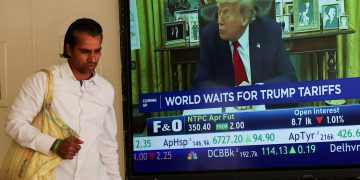Last year, Chinese businessman Li Xiaosan and his teenage son travelled 5,000 kilometres (3,107 miles) through Central America to reach the United States.
In Colombia, they were robbed at gunpoint and lost almost all their valuables. In Panama, they trekked through treacherous jungle and swamp, and in Mexico took a perilous 12-hour voyage by sea.
At Chinese New Year they video-chatted with family members back home in China, and Li’s son broke down in tears. Li told him: “Freedom is not free.”
Li and his son were among more than 37,000 Chinese nationals who were arrested for illegally crossing the US’s southern border in 2023, and Chinese nationals are now the largest group outside of the Americas to attempt the perilous journey. Many, like Li, are middle class.
“Everything about the country’s politics and economy was dark,” Li told Al Jazeera. “What’s the meaning of living there without any hope?”
Li’s life in China once seemed like the “Chinese dream” come true. The 44-year-old grew up in a poor village in China’s central Henan province, got a college education and founded a company trading leather products. He once owned multiple apartments and sent his two sons to international schools in Thailand.
But when the COVID-19 pandemic hit, Li’s comfortable life was turned upside down. Orders from international clients dried up, and his business collapsed. Li returned to his hometown in Henan but soon realised that due to China’s strict…



























































